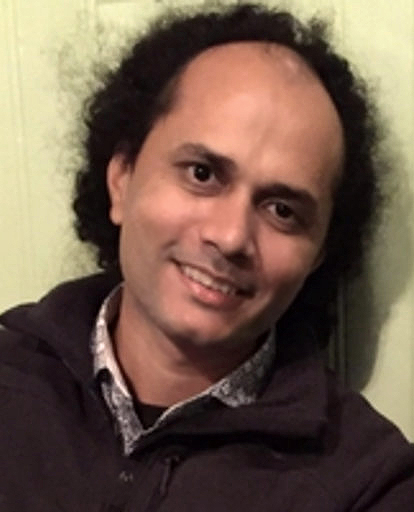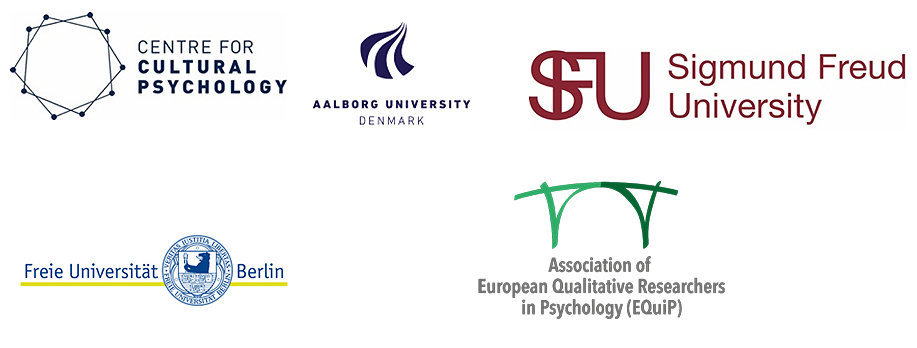Increasing mobility and migration in today’s societies call for inter- and transcultural perspectives and diversity sensitivity in research. Particularly in the social sciences, there is a growing awareness of the Western dominance of methodological approaches and knowledge production. The need for a critical discussion of possible blind spots and hegemonic presuppositions when conducting qualitative research in non-Western societies or with participants from non-Western backgrounds has become evident.
This two-day online course first provides an overview of what is meant by “decolonizing knowledge production” and how this can be achieved in practice (Prof. Puleng Segalo, University of South Africa, South Africa). In a second step, it will show the centrality of the relationship to the people with (not about) whom research is conducted (Prof. Danilo Silva Guimarães, University of São Paulo, Brazil) Finally, the practical possibilities of implementation will be discussed on the basis of the participants’ dissertation projects. On the second day of the workshop, a critical perspective on the concept of “decolonization” will be revisited, as the path to decolonization must not lead to dichotomization (e.g., Western and non-Western ways of knowledge production), but rather to the question of how a critical-emancipatory perspective can be opened up as an alternative (Mastura Institute of Applied Science in Psychosocial Work, Sulaymaniah, Kurdistan Region of Iraq). Finally, participants will have the opportunity to discuss individual projects with the experts at the “Knowledge Exchange Fair” (open breakout sessions).
The course is open to PhD students from different disciplines who are interested in the topic. The course consists of a mixture of lectures, practical training within breakout sessions and individual consultations with participants. It will provide participants with both theoretical background and initial practical training in how to (A) identify blind spots in their own research and (B) how to overcome them. A general knowledge of qualitative research will be helpful, but is not required.
DAY 1
10h00 – 10h10
Welcome and Overview (Meike Watzlawik & Carolin Demuth)
10h10 – 11h00
Presentation of participants
11h00 – 12h00
Key note 1
Following the decolonial impulse: Reimagining Methodological Approaches and Ethical Principles
Prof. Puleng Segalo, University of South Africa, South Africa
Coffee Break
12h15 – 13h15
Key note 2
From Decolonial to Indigenous Approaches to Constructing Knowledge
Prof. Danilo Silva Guimarães, University of São Paulo, Brazil
Lunch break
14h00 – 16h00
Two parallel data sessions
16h00 – 16h30
Summary
DAY 2
10h00 – 10h10:
Welcome and Overview
10h10 – 11h10
Key note 3:
De-Colonialization of psychological and psychosocial knowledge and practice:
Between romanticizing indigenous knowledge and globalization of critical and emancipatory approaches
Mastura Institute of Applied Science in Psychosocial Work, Sulaymaniah, Kurdistan Region of Iraq
Coffee Break
11h30 – 13h30
Knowledge Exchange Fair
13h30 – 14h30
Summary and conclusion
Participating
Max number of participants: 18
There will be 2 options for participating:
A. Participation including presenting own material in breakout sessions (max. 3 per data)
Participants who would like their material to be discussed in the breakout session need to send an application including:
- a brief description of their project (approx. ½-1 page)
- the material they would like to present (e.g., their research design or concrete material to be analyzed)
- Preference of data session (1) Puleng Segalo or (2) Danilo Silva Guimarães in which your material shall be discussed
Deadline for submitting your application: January 31, 2024.
B. Participation without presentation of own material in breakout sessions (max 12 participants), i.e. these participants will also participate in the breakout sessions but not present own material.
Please indicate with your registration
- Preference of breakout session (1) Puleng Segalo or (2) Danilo Silva Guimarães in which you would like to participate
- Registration deadline: February 05, 2024
- Participation is free of charge.
Keynote 1: Abstract and Suggested Readings
Key note 1: Following the decolonial impulse: Reimagining Methodological Approaches and Ethical Principles
Puleng Segalo (University of South-Africa)
The decolonial impulse has offered the opportunity for reflection, critiquing, and reimagining of the academic project. The politics of knowledge production and the idea of which and whose knowledge matters has come to the centre; and the Euro-western canons that have for a long time been privileged and taken as the norm within institutions of higher learning have been put on the spotlight. The call for decolonisation has offered the opportunity for rethinking and questioning the universalist idea of being and knowing. What does this mean for how we think about research? How might we reimagine our methodological approaches and ethical principles we use in research differently? What might we gain if we centred indigenous knowledge systems in our quest for psychological wellbeing? My talk will reflect on these questions as I challenge us to embrace pluriversal approaches to research and what Thomas Teo calls epistemic modesty.
Suggested Readings:
Aboderin, I., Fuh, D., Gebremariam, E. B., & Segalo, P. (2023). Beyond ‘equitable partnerships’: the imperative of transformative research collaborations with Africa. Global Social Challenges Journal (published online ahead of print 2023). https://doi.org/10.1332/27523349Y2023D000000002
Chilisa, B. (2017). Decolonising transdisciplinary research approaches: An African perspective for enhancing knowledge integration in sustainability science. Sustainability Science, 12, 813–827.Mkhize, N. (2021). African/Afrikan-centered Psychology. South African Journal of Psychology, 51(3), 422-429.
Segalo, P. & Cakata, Z. (2017). A psychology in our own language: Redefining psychology in an African context. PINS [online], 54, 29-41. Available from: http://www.scielo.org.za/scielo.php?script=sci_arttext&pid=S1015-60462017000200003
Smith, L. T. (2005). On Tricky Ground: Researching the Native in the Age of Uncertainty. In N. K. Denzin & Y. S. Lincoln (Eds.), The Sage Handbook of Qualitative Research (pp. 85–107). Sage Publications Ltd.
Smtih, L.T. (2014). Social Justice, Transformation and Indigenous Methodologies. In R.E. Rinehart, K.N. Barboour, & C.C. Pope (Eds.), Ethnographic Worldviews: Transformations and Social Justice (pp. 15-20). Springer.

Puleng Segalo is a professor in the department of psychology, and the Chief Albert Luthuli Research Chair at the University of South Africa. She completed her PhD in Social and Personality Psychology from the Graduate Center, City University of New York. Her areas of specialization include Africa-centered psychology, gender and trauma, and decolonial feminism in psychology. Her research focuses on historical trauma, visual methodologies, and gendered suffering. She is currently the 2023-2025 research fellow at the University of Kansas’ African Studies Center and the 2023 research fellow at the University of Ghana’s Institute for African Studies. She has established herself in the field and as a result has been invited as a speaker at a number of national and international conferences. In 2007 she was one of the ten psychologists from around the world invited to attend a round table discussion in Luxembourg to discuss the future of the psychology discipline. She has published widely in local and internationally acclaimed journals. Her immense interest and concern for the role that psychology can play regarding issues of social justice led to her being appointed as a Society for the Psychological Studies of Social Issues representative at the United Nations in New York.
Keynote 2: Abstract and Suggested Readings
Key note 2: From Decolonial to Indigenous Approaches to Constructing Knowledge
Danilo Silva Guimarães (University of São Paulo, Brazil)
From my field of research, the history and philosophy of psychology, I understand psychology as a socio-historical field of knowledge that emerged in colonial societies and that includes the answers that the colonial tradition has developed to questions related to the encounter with the diversity of ways of being human. I then propose to include the perspective of indigenous traditions in this debate. Since indigenous knowledge is mainly constructed outside the universities, it is necessary to experience how it is constructed in indigenous communities and in dialogue with indigenous people. However, we are not interested in appropriating indigenous knowledge, but in experiencing the transformation of psychology through the inclusion of indigenous traditions and critique. Therefore, no data is collected in the communities, the dialogues are constructed as a forum to discuss ideas when it is in the interest of the community. When the topics of the dialogue reach the interest of mutual collaboration, the knowledge generated in the encounter with the communities can be applied to verify its consistency, in cultural and extension academic projects. The nature of these projects is different from research, they are part of the professional training of our students, who learn how to transform academic knowledge to become useful in solving the needs of the communities. When these activities leave public traces (such as documents and video recordings of indigenous speeches at the university), indigenous knowledge can be selected, cited, discussed and analysed. The indigenous authorship of the knowledge is then preserved. This is where the real research begins. From a methodology to the construction of historical-philosophical knowledge of psychology (dialogical multiplication), the traditions that ground the indigenous and the psychological are distinguished. Resonances and convergences are sought in order to evaluate the continuity of the collaboration between the communities and the students.
Suggested Readings:
de Almeida, M. N., Caixeta, C. C., Santos Silva, N. D., de Morais, N. M., Dos Santos, P. D., Gonçalves, L. P., Achatz, R. W., Silva Guimarães, D., & Chaudhary, N. (2023). Challenges and Concerns in Assisting Indigenous People with Suicide Attempts. Integrative Psychological & Behavioral Science, 10.1007/s12124-023-09803-x. Advance online publication. https://doi.org/10.1007/s12124-023-09803-x
Gonzalez, R. & Silva Guimarães, D. S. (2021) The Negotiation of Continuity and Change of Mapuche Women Weavers in Chile and Its Implications for (Non-Eurocentric) Identity Research. In M. Bamberg, C. Demuth, & M. Watzlawik (2021), The Cambridge Handbook of Identity. Cambridge University Press.
Kiki, K.F.S., Guimarães, D.S. (2022). Cultural Area as a Guide in the Construction of the Person: the Case of Adjatado of Dogbo in Benin. Human Arenas, 5, 196–206. https://doi.org/10.1007/s42087-020-00133-7
Silva Guimarães, D. (2020). Dialogical multiplication: Principles for an indigenous psychology. Springer.
Silva Guimarães, D. (2022). Indigenous Psychology. In J. Zumbach, D. Bernstein, S. Narciss, & G. Marsico (Eds.), International Handbook of Psychology Learning and Teaching. Springer.

Danilo Silva Guimarães is of Tikmu’un (Maxakali) indigenous descent. He is Associate Professor in the History and Philosophy of Psychology at the Institute of Psychology, University of São Paulo. His research focuses on epistemological, ontological and ethical issues in the semiotic-cultural processes of constructing meaning in the everyday life encounters. He is a founding member and coordinator of the Indigenous Care Network and the House of Indigenous Cultures at USP. In 2020 he published the book Dialogical Multiplication: Principles for an Indigenous Psychology with Springer in the Latin American Voices series.
The Mastura Institute of Applied Science in Psychosocial Work, Sulaymaniah, Kurdistan Region of Iraq, has the goal of strengthening local research and local knowledge about psychosocial counselling of people affected by political, social and gender-based violence in the Kurdistan region of Iraq. It also brings together local academics and practicioners and creates platforms for international knowledge exchange, in order to contribute to decolonizing psychological knowledge
Organizers: The course is offered by the Doctoral School Communication & Psychology, Aalborg University (https://www.communication.aau.dk/research/phd-programme) and organized by Meike Watzlawik (SFU Berlin) & Carolin Demuth (Aalborg University)
Please register/send your applications to Hanne Porsborg Clausen: hannepc@ikp.aau.dk
Number of ECTS: 2
Participation is free of charge
This Winter School is part of the Annual Transdisciplinary Winter School “Culture, Psychology & Qualitative Research” organized by the Sigmund Freud University Berlin (Meike Watzlawik), Sigmund Freud Private University Vienna (Dominik Mihalits), the Centre for Cultural Psychology, Aalborg University (Carolin Demuth) and Free University of Berlin (Thomas Stodulka) in cooperation with the Association of European Qualitative Researchers in Psychology (EQuiP).


